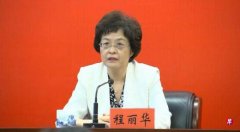The Fifth Confederation of the China -Korea Free Trade Agreement was held on Monday (December 4) in Beijing.This is the first time that the meeting has been promoted to the ministerial level.
According to the official website of the Ministry of Commerce of China, Wang Shouwen, representative and deputy minister of the Ministry of Commerce of the Ministry of Commerce of China, and Anders of the Ministry of Industry and Commercial Resources of the Ministry of Commerce in Korea chaired the meeting.The Ministry of Commerce of China, the Ministry of Finance, the Ministry of Agriculture and Rural, the Ministry of Ecology and Environment, the General Administration of Customs, the General Administration of Market Supervision, Weihai City, Shandong Province, etc., as well as the Ministry of Commerce Resources of the Korean Industry, the Ministry of Planning and Finance, and the Embassy in China.
The Yonhap News Agency quoted the Ministry of Commerce Resources of the South Korean Industry on Monday that the Fifth Joint Committee meeting of the South Korean and China Free Trade Agreement (FTA) was held in the Beijing Ministry of Commerce Building on the day.The two sides exchanged opinions on the landing situation of the FTA and discussed the plan to expand bilateral economic and trade cooperation.The first four joint committees will belong to the department level, and this time it will be upgraded to the ministerial level.
The Ministry of Commerce of China reported that during the meeting, the two parties jointly reviewed the implementation of goods trade, origin rules, technical trade barriers, and economic cooperation under the agreement.In -depth communication such as electronic communication equipment certification and coding of some agricultural products.
According to the report, the two parties agree that the cooperation of the industrial chain supply chain will be deepened, the high -quality implementation of the China -Korea Free Trade Agreement will be promoted, and the second phase of negotiation will be accelerated to make the agreement better benefit from the two countries and the people and the people.EssenceThe two sides also agreed that the research institutions between China and South Korea conducted joint research on the implementation of the China -Korea Free Trade Agreement and further upgrading.
In addition, China and South Korea have also established bilateral export control dialogue mechanisms and establishing opinions on the exchange of supply chain and reaching consensus.The China -Korea Free Trade Agreement officially took effect on December 20, 2015.The two parties have reduced tax cuts nine times, the bonus of the agreement has been continuously released, and the utilization rate of the agreement has continued to increase.The 10th tax reduction will be performed on January 1 next year.
Yonhap News Agency reported that the FTA of South Korea and China will usher in the 10th anniversary of the effect of signing the effect in 2025. On this way, the two parties exchanged opinions on the results of the results and strive to formulate improvement plans.Promote joint research projects.The two sides also reached an agreement on restarting FTA service investment subsequent negotiations and agreed to work hard to achieve specific results.
Anders and Wang Shouwen, the chief representatives of South Korea and China, also held bilateral talks to discuss the scheme of a stable supply chain.At the meeting, the two sides further activated the agreement between the supply chain hotline between the Ministry of Commerce Resources and the Ministry of Commerce of the Ministry of Commerce in Korea.At the meeting, the South Korean side mentioned that China suddenly suspended the process of car urea solution that was exported to South Korea, requiring China to take measures immediately.
According to the consensus reached during the Asia -Pacific Economic Co -Organization (APEC) San Francisco Summit last month according to the Minister of Commerce Fang Wentuki, the Minister of Commerce in Korea Industry and the Minister of Commerce of China.Specific operating methods conduct working layers of consultation.


